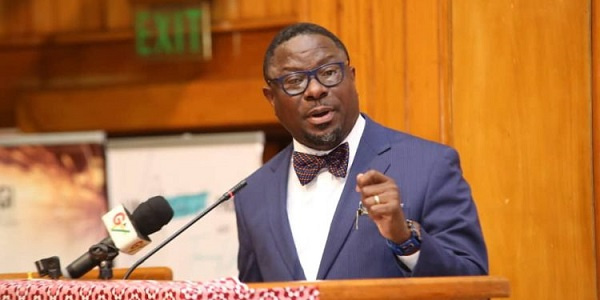AGI, DBG relations will support Ghana’s SME businesses to grow Ghana – AGI
With the establishment of DBG, the AGI sees a great opportunity to grow strong bonds with the development bank and thereby work together towards improving the support that SMEs receive in Ghana. AGI will pursue its agenda through capacity building of SMEs, training and networking as its cardinal activities.

The Association of Ghana Industries (AGI) and Development Bank Ghana (DBG) have signed a Memorandum of Understanding (MoU) in order to cement their relationship and commitment to promoting the growth of the Small and Medium-sized Enterprises (SME) sector and ultimately improving their contribution towards the development of Ghana’s economy.
The AGI as the national body of industrial entities acknowledges the role of SMEs in the economies of developing countries and is committed to growing Ghana through industries, especially the SME sector.
- Advertisement -
SMEs form about 80 percent of businesses in Ghana, as such the AGI considers it critical that it offers structured support for this sector of the economy.
- Advertisement -
Over the years, AGI has remained focused on contributing substantially to the growth and development of Industry through effective policy advocacy and the provision of business support services.
With the establishment of DBG, the AGI sees a great opportunity to grow strong bonds with the development bank and thereby work together towards improving the support that SMEs receive in Ghana. AGI will pursue its agenda through capacity building of SMEs, training and networking as its cardinal activities.
Furthermore, AGI will continue to engage government and its agencies to create the enabling environment for the growth of businesses and the creation of jobs.
In line with its objective to grow a strong industrial base with key sectors that are globally competitive, the AGI also sees the relationship with DBG as an opportunity to strengthen Ghana’s industries for international competition, particularly with the introduction of the Africa Continental Free Trade Area (AfCFTA).
- Advertisement -
The AGI, therefore, looks forward positively as it works with DBG to build on the support available to the SME sector to position Ghanaian businesses for exports to the region.
Commenting, the AGI President, Dr. Humphrey Ayim-Darke said, “AGI and DBG’s relations will assist in deploying various interventions to support SMEs for growth. This will be done through capacity building, mentoring and business advisory services. We will fish out potentially innovative SMEs that we believe are in the growth-oriented sectors of the economy that cuts across the nation. We will identify and support them through the DBG and AGI collaboration. Specifically, AGI will avail the data of its SME members who meet the eligibility, criteria of the participating financial institutions or commercial banks that receive funding from the DBG to lend to SMEs. We will seek to bring to the table further understanding of each sector to assist these financial institutions to be able to structure suitable funding for each sector and business entities.”
Over the years, the business barometer survey and report has indicated that access to funding and cost of funding have been the biggest challenge of most SMEs. With the introduction of DBG and the collaboration with AGI, there are several expected benefits to members of the Association in the SME bracket.
These include access to medium-to-long term funding, access to competitive rates, that positions these SMEs for potential growth and export of their products as well as job creation which is very critical for the stability of Ghana. AGI will additionally offer mentoring, capacity building and networking opportunities to assist succession planning in SME businesses.
The AGI has since 1957 pursued the not-for-profit agenda of promoting industries and indigenous manufacturers in Ghana. This includes providing proactive support services to the industrial sector with the view to contributing substantially to the growth and development of industry in Ghana.
The Association has over 1200 members across all the regions of the country and is recognised as the leading voice of the private sector.
Source: norvanreports. com
- Advertisement -



